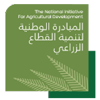The Arabian Gulf University (AGU) announced the results of a study that evaluated the contribution of urban tree planting to carbon sequestration and storage in the Kingdom of Bahrain. The study was conducted in partnership with the National Initiative for Agricultural Development (NIAD) at the Princess Al Jawhara Al Ibrahim Centre For Molecular Medicine, Genetics and Inherited Disorders (ACMID).
The study, titled “Evaluation of the Contribution of Urban Tree Planting to Carbon Sequestration and Storage in the Kingdom of Bahrain”, involved 140 government schools participating in the data collection on various trees and shrubs as part of the national afforestation campaign “Stay Green”.
Her Excellency Shaikha Maram bint Isa Al Khalifa, Secretary General of NIAD, expressed appreciation for Her Royal Highness Princess Sabeeka bint Ibrahim Al Khalifa, Wife of His Majesty the King, for Her Royal Highness’s efforts and vision for agricultural development in Bahrain.
Shaikha Maram emphasised the importance of the national afforestation campaign and the need to assess the impact of urban tree planting on carbon sequestration. She explained that the collaboration with AGU, initiated in May 2023, with the aim of producing scientific research on the effectiveness of trees in absorbing and storing carbon, in order to support environmental preservation efforts and achieve climate goals.
On his part, Dr Saad bin Saud Al Fuhaid, President of AGU, highlighted the university’s commitment to addressing global climate change through research and studies. He praised the university’s role in contributing to environmental sustainability and cooperation with government ministries and research centres in the GCC countries.
The study on urban tree planting in Bahrain aligns with national and international efforts to mitigate greenhouse gas emissions and adapt to climate change. It complements the GCC countries’ commitment to climate action as part of the Sustainable Development Goals. The university’s involvement in such studies is essential for leading change, promoting excellence, and addressing environmental challenges effectively.
Dr Al Fuhaid reviewed the efforts made by academic chairs in various fields of education and learning. He cited the Academic Chair of His Highness the late Shaikh Zayed bin Sultan Al Nahyan for Environmental Sciences, which contributed to disseminating scientific knowledge related to climate change and capacity building. He referred to training workshops and scientific seminars hosted by the university to focus on the environment and climate change and its multiple impacts on the countries of the Cooperation Council.
He also mentioned the Sultan Qaboos Chair for Desert Farming and Soilless Agriculture Techniques, which was inaugurated in 1994 to focus most of its research on desert farming and soilless agriculture techniques and the preparation of qualified Gulf cadres.
Dr Al Fuhaid praised the efforts of academic researchers since the mid-1990s in preparing studies for the West Asia region in the Global Environment Outlook (GEO) reports. These reports explain the current state of the environment, potential environmental trends in the future, analyse the effectiveness of policies, and show what governments can do to put the world on the right track for a sustainable future.
In conclusion, Dr Al Fuhaid appreciated the trust of Shaikha Maram, and her support for the university and its researchers. He extended his gratitude to the academic research team participating in the implementation of the study, stating that this study will be the nucleus of applied research with a sustainable impact.
On her part, Dr Sabah AlJenaid, Associate Professor of Geographic Information Systems and Environment in the Natural Resources and Environment Programme, reviewed the results of the study reached by a multidisciplinary work team in biodiversity and forests.
She clarified that the team analysed spatial and geospatial databases, as well as satellite images and visuals, to estimate the carbon sequestered in trees in different regions of the world, comparing them with the types of trees and shrubs approved in the national afforestation plan in the Kingdom of Bahrain to facilitate comparisons between species and give close estimates of carbon sequestration in them.
“The study analysed the databases of trees and shrubs collected by NIAD, which were planted as part of the ‘Stay Green’ campaign since 2021 in cooperation with various parties. The study also focused on the practical aspect of surveying trees and shrubs in cooperation with male and female teachers in primary, middle and secondary schools, which numbered 140 between boys and girls schools,” she said.
Dr Al Junaid added that the study audited all data outputs and analysed them using modern technologies, including artificial intelligence techniques to audit the locations of schools, trees, and shrubs, as well as green spaces, using open data sites on the Google Earth big data platform for auditing and analysis.


